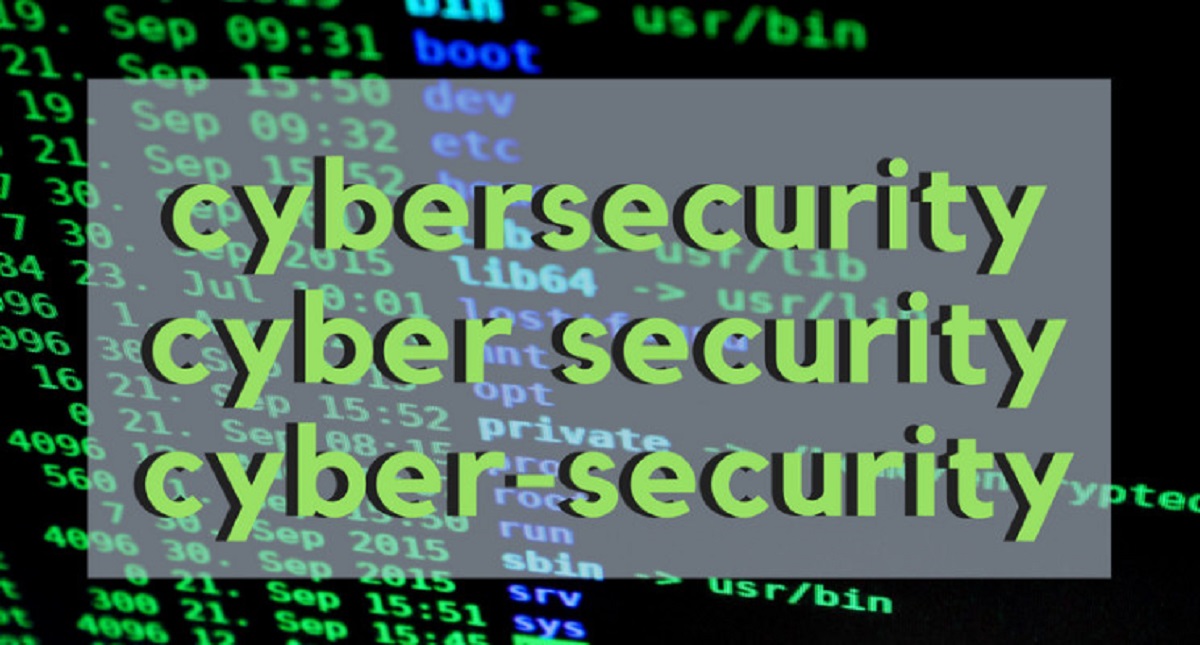Introduction
With the increasing reliance on technology and the exponential growth of cyber threats, cybersecurity has become an indispensable field in today’s digital age. As the world becomes more interconnected, the need to protect sensitive information and networks from hackers, viruses, and other malicious activities has never been more critical. Cybersecurity professionals play a vital role in safeguarding data, preventing cyberattacks, and ensuring the privacy and integrity of digital systems.
Cybersecurity encompasses a range of practices, technologies, and processes aimed at protecting computer systems, networks, and data from unauthorized access, theft, or damage. It involves analyzing potential vulnerabilities, implementing preventive measures, monitoring for intrusions, and responding effectively to security incidents. Cybersecurity professionals apply their knowledge and skills to identify weaknesses in systems, develop defenses against emerging threats, and constantly adapt their strategies to stay one step ahead of cybercriminals.
As the risk of cybercrime escalates, organizations across industries are prioritizing the security of their digital assets. This has led to a growing demand for skilled cybersecurity professionals who can combat the ever-evolving cyber threats effectively. Careers in cybersecurity offer a rewarding and challenging path for individuals who are passionate about technology, problem-solving, and protecting vital information.
However, entering the field of cybersecurity requires more than just technical expertise. It demands a combination of technical know-how, analytical thinking, and a deep understanding of the constantly evolving threat landscape. It is essential to assess if a career in cybersecurity is the right fit for your skills, interests, and long-term goals.
This article will explore the world of cybersecurity, its importance, the skills required for success, and how you can determine if it is the right career path for you. Whether you are a recent graduate, considering a career change, or simply curious about the field, this guide will provide valuable insights to help you make an informed decision.
What is Cybersecurity?
Cybersecurity refers to the practice of protecting computer systems, networks, and data from unauthorized access, misuse, and exploitation. It encompasses a wide range of strategies and techniques designed to prevent and mitigate the risks associated with cyber threats.
In today’s digital landscape, where technology is an integral part of our personal and professional lives, the need for robust cybersecurity measures has become paramount. Cybercriminals, hackers, and malicious actors constantly seek to exploit vulnerabilities in computer systems and networks to gain unauthorized access, steal sensitive information, disrupt operations, or cause other forms of harm.
Cybersecurity plays a critical role in safeguarding individuals, organizations, and even nations from these threats. It involves implementing various protective mechanisms, security protocols, and best practices to ensure the confidentiality, integrity, and availability of data and systems. Some of the key aspects of cybersecurity include:
- Network Security: This involves securing computer networks from unauthorized access, ensuring that only authorized users can access network resources, and protecting network communication from interception or tampering.
- Information Security: Information security focuses on protecting the confidentiality, integrity, and availability of sensitive data. It involves implementing encryption, access controls, data backup, and other measures to prevent data breaches and unauthorized disclosure of information.
- Application Security: Application security aims to ensure that software and applications are developed and maintained with proper security measures in place. This involves conducting regular vulnerability assessments, code reviews, and testing to identify and fix potential weaknesses that could be exploited by attackers.
- Endpoint Security: Endpoint security focuses on securing individual devices such as computers, smartphones, and IoT (Internet of Things) devices. It involves implementing antivirus software, firewalls, and other protective measures to prevent malware infections, unauthorized access, and data loss.
- Incident Response: Incident response refers to the processes and procedures followed when a security incident occurs. This includes identifying and containing the incident, investigating its cause, mitigating the impact, and restoring normal operations as quickly as possible.
Overall, cybersecurity encompasses a multi-layered approach that combines technology, policies, and human vigilance to protect against cyber threats. It requires a continuous effort to stay up-to-date with emerging threats, apply industry best practices, and adapt security measures accordingly.
Why is Cybersecurity important?
In today’s interconnected and digitized world, the importance of cybersecurity cannot be overstated. Cybersecurity is crucial for individuals, businesses, and governments alike, as it plays a vital role in protecting sensitive information, ensuring privacy, and safeguarding the integrity of digital systems.
Here are some reasons why cybersecurity is of utmost importance:
Protection of Personal Information: With the increasing amount of personal data being stored and shared online, protecting sensitive information has become crucial. Cybersecurity measures help prevent identity theft, financial fraud, and other forms of cybercrime that could have severe consequences for individuals.
Preserving Business Continuity: Businesses rely heavily on computer networks and digital systems to carry out their day-to-day operations. A major security breach or cyberattack can disrupt services, cause financial losses, and damage a company’s reputation. Robust cybersecurity measures help reduce the risk of such incidents and ensure the continuous functioning of businesses.
Prevention of Data Breaches: Data breaches can have devastating consequences, exposing confidential information, trade secrets, or customer data to unauthorized individuals. Cybersecurity measures, such as encryption, access controls, and regular security audits, help prevent data breaches and minimize the impact of any potential incidents.
Protection of Critical Infrastructure: Critical infrastructure, such as power grids, transportation systems, and healthcare facilities, heavily relies on technology and interconnected networks. A successful cyberattack on these systems can have severe consequences, ranging from power outages to disruptions in essential services. Robust cybersecurity measures are essential to protect critical infrastructure from potential threats.
Defense against Cyberattacks: Cyberattacks come in various forms, including malware, phishing, ransomware, and DDoS (Distributed Denial of Service) attacks. Effective cybersecurity measures act as a defense against these attacks, detecting and preventing them before they can cause significant harm.
Preservation of National Security: Cyberattacks not only target individuals and businesses but also pose a significant threat to national security. Governments rely on strong cybersecurity measures to protect classified information, defend against cyber espionage, and ensure the integrity of critical national infrastructure.
Compliance with Regulations: Many industries have specific regulations and compliance requirements related to data protection and cybersecurity. Adhering to these regulations is not only essential for legal compliance but also for maintaining trust with customers and stakeholders.
Protection of Intellectual Property: Intellectual property, including patents, trade secrets, and proprietary software, is highly valuable and sought after by cybercriminals. Robust cybersecurity measures help protect organizations’ intellectual property from theft, unauthorized access, and counterfeit activities.
In summary, cybersecurity is important for preserving privacy, ensuring business continuity, preventing data breaches, protecting critical infrastructure, defending against cyberattacks, safeguarding national security, complying with regulations, and preserving intellectual property. By investing in robust cybersecurity measures, individuals and organizations can mitigate risks and protect themselves in an increasingly interconnected and digital world.
Skills required for a career in Cybersecurity
A career in cybersecurity requires a unique set of skills and knowledge to effectively protect computer systems, networks, and data from cyber threats. While the specific skills may vary depending on the role and specialization within the field, here are some essential skills that are highly valuable for a successful career in cybersecurity:
Technical Proficiency: An in-depth understanding of computer systems, networks, and information security concepts is crucial. Proficiency in programming languages, such as Python, Java, or C++, and knowledge of operating systems, databases, and network protocols are essential for analyzing vulnerabilities, implementing security controls, and conducting penetration testing.
Networking and Systems Administration: Familiarity with networking concepts and systems administration is important for understanding how data flows across networks, troubleshooting network issues, implementing firewalls, and configuring secure network architectures.
Cryptographic Principles: Knowledge of cryptographic algorithms, encryption methods, and secure protocols is necessary to ensure the confidentiality and integrity of data. Understanding the principles behind encryption, digital signatures, and secure key management is essential for securing communications and protecting sensitive information.
Information Security: A solid foundation in information security principles, best practices, and industry standards is vital. This includes knowledge of access controls, security policies, risk assessment, incident response, and compliance regulations. Understanding the importance of data classification, secure coding practices, and secure software development lifecycles is also essential.
Threat Intelligence and Vulnerability Assessment: Keeping up-to-date with the latest cyber threats, vulnerabilities, and attack vectors is critical. This involves analyzing threat intelligence reports, monitoring security bulletins, and conducting vulnerability assessments to identify weaknesses in systems and networks.
Analytical and Problem-Solving Skills: The ability to analyze complex problems, identify patterns, and think critically is essential in cybersecurity. Cybersecurity professionals often encounter unique challenges that require creative problem-solving skills to develop effective solutions and respond to security incidents.
Communication and Collaboration: Cybersecurity professionals must be able to effectively communicate complex security concepts to both technical and non-technical individuals. Strong communication skills are necessary for collaborating with colleagues, engaging with stakeholders, and providing guidance on security practices.
Continuous Learning and Adaptability: The cybersecurity landscape is constantly evolving, with new threats and technologies emerging rapidly. A commitment to continuous learning, staying updated with industry trends, and acquiring new skills is crucial for success in this field.
It’s important to note that while technical skills are vital in cybersecurity, soft skills, such as teamwork, leadership, and problem-solving, are also highly valued. The ability to work effectively in a team, adapt to new situations, and communicate clearly are essential for collaborating with others and managing security incidents.
By developing a combination of technical and soft skills, individuals can build a solid foundation for a successful career in cybersecurity. Continuous learning, hands-on experience, and professional certifications can further enhance these skills and open doors to various roles within the cybersecurity field.
How to determine if Cybersecurity is for you?
Cybersecurity is a challenging and rewarding field that offers numerous opportunities for individuals with the right skills and passion. However, before diving into a career in cybersecurity, it is important to assess whether it aligns with your interests, strengths, and long-term goals. Here are some steps you can take to determine if cybersecurity is the right path for you:
1. Assessing your Interests and Passion: Reflect on your interests and determine if you have a genuine curiosity about technology and cybersecurity. Are you fascinated by how computer systems work? Do you enjoy problem-solving and analyzing complex challenges? Passion for the field can provide the motivation and drive needed to excel in a cybersecurity career.
2. Researching the Field: Take the time to research the various areas and specialties within cybersecurity. Familiarize yourself with different roles such as penetration tester, security analyst, incident responder, or security architect. Understand the skills, responsibilities, and career paths associated with each role. This will help you identify which areas align with your interests and strengths.
3. Networking with Professionals: Connect with cybersecurity professionals through industry events, conferences, or online communities. Engage in conversations, ask questions, and gain insights into their experiences and challenges. Networking can provide invaluable guidance and help you understand the day-to-day realities of working in cybersecurity.
4. Education and Training Options: Evaluate the educational and training options available to develop the necessary skills and knowledge. Consider pursuing a degree in cybersecurity, computer science, or a related field. Explore professional certifications, such as Certified Ethical Hacker (CEH) or Certified Information Systems Security Professional (CISSP), which can enhance your credibility and demonstrate your expertise in specific areas.
5. Gaining Practical Experience: Seek opportunities to gain hands-on experience in cybersecurity. Look for internships, volunteering roles, or entry-level positions in organizations where you can apply your skills and learn from experienced professionals. Practical experience will not only validate your interest but also help you develop technical proficiency and a deeper understanding of the field.
6. Embracing Continuous Learning: Cybersecurity is a constantly evolving field, with new threats and technologies emerging regularly. Assess your willingness to invest in continual learning and staying updated with the latest trends and advancements. This field requires individuals who are committed to keeping their skills up to date and enhancing their knowledge throughout their careers.
7. Evaluating the Demands of the Field: Consider the demands and challenges that come with a career in cybersecurity. It often requires long hours, strong attention to detail, and the ability to handle high-pressure situations. Assess if you are comfortable with the demands and can thrive in an environment that may require quick decision-making and the ability to adapt to changing circumstances.
Remember, determining if cybersecurity is the right path for you requires self-reflection, research, and exploration. Identify your interests, strengths, and motivations, and evaluate them in the context of the field. By taking these steps, you can gain clarity and confidence in making an informed decision about pursuing a career in cybersecurity.
Assessing your Interests and Passion
When considering a career in cybersecurity, assessing your interests and passion is a crucial first step. Being genuinely interested in the field and having a passion for technology and security will provide the motivation and drive needed to excel in this challenging and ever-evolving field. Here are some key factors to consider when assessing your interests and passion for cybersecurity:
1. Curiosity about Technology: Are you naturally curious about how computers and networks function? Do you enjoy learning about new software, hardware, and emerging technologies? A genuine interest in technology will make it easier for you to dive deep into the intricacies of cybersecurity.
2. Problem-Solving Orientation: Cybersecurity professionals face complex challenges every day. Assess if you have a natural aptitude for problem-solving and enjoy analyzing intricate issues. The ability to think critically and approach problems from different angles is vital in cybersecurity, as it often involves identifying vulnerabilities and implementing effective solutions.
3. Analytical Thinking Skills: Cybersecurity requires the ability to analyze data, spot patterns, and draw inferences. Assess if you possess strong analytical thinking skills which enable you to identify potential threats, evaluate risks, and make data-driven decisions. This skill set is particularly valuable in areas like threat hunting, vulnerability assessments, and incident response.
4. Ethical Mindset: Integrity is at the core of cybersecurity. Assess if you have a strong ethical mindset and a commitment to upholding integrity and confidentiality. In this field, professionals often handle sensitive data and must navigate complex ethical dilemmas. Having a strong moral compass will ensure you approach cybersecurity with the appropriate ethical considerations.
5. Continuous Learning and Adaptability: Cybersecurity is a field that requires continuous learning and adaptability. Assess if you enjoy staying updated with the latest industry trends, emerging threats, and technological advancements. A passion for learning and a willingness to adapt to new challenges and technologies will help you thrive in the rapidly evolving landscape of cybersecurity.
6. Motivation to Protect and Secure: One of the core motivations in cybersecurity is the desire to protect and secure digital assets. Assess if you are genuinely motivated to safeguard individuals, organizations, and even nations from cyber threats. Having a natural inclination towards ensuring the privacy, integrity, and availability of digital systems can provide a strong foundation for a career in cybersecurity.
7. Enjoyment of Continuous Problem-solving: Cybersecurity is not a one-time task but an ongoing process of identifying and mitigating risks. Assess if you find enjoyment in the continuous problem-solving aspect of cybersecurity. The ability to think critically and adapt to dynamic threats will enable you to navigate the evolving cybersecurity landscape effectively.
Remember, assessing your interests and passion for cybersecurity is an ongoing process. It may involve self-reflection, exploring related hobbies or projects, and seeking guidance from professionals in the field. By aligning your interests and passion with the demands of the cybersecurity field, you can embark on a career that is not only rewarding but also aligns with your genuine enthusiasm for technology and security.
Researching the Field
When considering a career in cybersecurity, conducting thorough research on the field is crucial to gain a comprehensive understanding of its various aspects, specialties, and opportunities. Investing time in researching the field will help you make informed decisions and identify the areas within cybersecurity that align with your interests and goals. Here are some key steps to guide your research:
1. Understanding the Range of Specialties: Start by exploring the different specialties within cybersecurity. From penetration testing and network security to incident response and security architecture, the field offers diverse career paths. Research the responsibilities, skills required, and growth prospects for each specialty to identify the areas that resonate with you.
2. Learning about Required Skills and Knowledge: Dive deep into the skills and knowledge essential for a career in cybersecurity. This includes technical skills, such as programming, networking, and systems administration, as well as knowledge of cybersecurity frameworks, encryption methods, and security protocols. Understanding the knowledge and skills required will help you develop a roadmap for acquiring and honing your expertise.
3. Exploring Industry Trends and Emerging Technologies: Stay updated with the latest industry trends and emerging technologies in cybersecurity. Research topics such as artificial intelligence in cybersecurity, cloud security, IoT security, or blockchain technology. Understanding these trends will give you insights into the future direction of the field and help you determine areas of specialization that align with your interests.
4. Reading Industry Publications and Reports: Keep abreast of industry publications, reports, and whitepapers to gain valuable insights into cybersecurity. Read publications from reputable sources, research cybersecurity frameworks, and familiarize yourself with best practices and standards. This will deepen your knowledge and provide a comprehensive view of the field.
5. Exploring Online Communities and Forums: Engage with cybersecurity professionals and enthusiasts through online communities and forums. Participate in discussions, ask questions, and seek guidance from experienced individuals. Online communities provide opportunities to learn from the experiences of others, gain practical insights, and build connections with professionals in the field.
6. Investigating Job Descriptions and Requirements: Analyze job descriptions and requirements for cybersecurity roles that interest you. Understand the skills, certifications, and experience employers seek in candidates. This research will help you identify the qualifications you need to acquire and provide insights into the job market demand for specific cybersecurity roles.
7. Attending Cybersecurity Events and Conferences: Attend industry events, conferences, webinars, and workshops focused on cybersecurity. These events offer opportunities to learn from industry experts, gain exposure to cutting-edge technology, and network with professionals in the field. By engaging with the cybersecurity community, you can expand your knowledge and stay updated with the latest developments.
Remember, researching the field of cybersecurity is an ongoing process. The landscape is constantly evolving, with new threats and technologies emerging regularly. Actively engage in research and continue to stay updated to ensure that you have the most up-to-date knowledge and insights. By conducting comprehensive research, you can make informed decisions about your career path and identify the areas within cybersecurity that align with your interests and aspirations.
Networking with Professionals
Networking with cybersecurity professionals is a valuable way to gain insights, guidance, and connections in the field. Building a strong professional network can provide you with valuable advice, mentorship opportunities, job leads, and a deeper understanding of the cybersecurity industry. Here are some essential steps to effectively network with professionals in the cybersecurity field:
1. Attend Industry Events and Conferences: Participate in industry-specific events, conferences, and seminars focused on cybersecurity. These gatherings bring together experts, researchers, and professionals from various aspects of the field. Take advantage of these opportunities to engage with industry leaders, attend talks and workshops, and network with like-minded individuals.
2. Join Online Cybersecurity Communities: Online communities such as forums, social media groups, and industry-specific platforms provide a virtual space for cybersecurity professionals to connect and share knowledge. Engage in discussions, ask questions, and contribute to these communities. This can help you build relationships with professionals in the field and stay updated with the latest trends and developments.
3. Leverage Professional Social Networks: Connect with cybersecurity professionals on professional networking platforms like LinkedIn. Customize your profile to showcase your interest in the field and reach out to individuals with similar interests or who are in positions you aspire to. Engage with their content, share your thoughts, and establish meaningful connections.
4. Seek Mentorship Opportunities: Identify experienced professionals who can mentor and guide you in your journey. Reach out to professionals through networking events, professional communities, or targeted communication. Be genuine in expressing your interest in their expertise and inquire about mentorship possibilities. Mentors can provide valuable insights, advice, and support as you navigate your career in cybersecurity.
5. Explore Internships and Volunteering: Seek out opportunities for internships or volunteering in cybersecurity organizations, non-profits, or community initiatives. These experiences can give you exposure to real-world cybersecurity projects, allow you to learn from professionals in the field, and expand your network. Internships and volunteering can also serve as stepping stones to full-time roles or provide valuable references for future career opportunities.
6. Attend Webinars and Workshops: Participate in webinars and workshops led by cybersecurity experts. These online events provide an opportunity to learn from industry professionals and interact with them through Q&A sessions and discussions. Engaging in these virtual learning experiences can help you establish connections with professionals with whom you share common interests or learning goals.
7. Seek Informational Interviews: Request informational interviews with cybersecurity professionals who inspire you or work in roles you aspire to. These interviews allow you to learn more about their career paths, gain insights into the industry, and establish connections. Approach these interviews with a genuine interest in their experiences and seek advice for your own career journey.
Remember, networking is a two-way street. It’s important to offer value to the professionals you connect with by sharing knowledge, resources, and insights when possible. Develop authentic relationships built on mutual respect and willingness to support each other. Networking with professionals in the cybersecurity field can provide guidance, mentorship, and opportunities for growth that can accelerate your career in this dynamic and rewarding industry.
Education and Training Options
Obtaining the right education and training is crucial for a successful career in cybersecurity. It provides you with the necessary knowledge, skills, and credentials to excel in this rapidly evolving field. Here are some key education and training options to consider:
1. Degree Programs: Pursuing a degree in cybersecurity, computer science, information technology, or a related field can provide a solid foundation for a career in cybersecurity. Bachelor’s, master’s, and doctoral programs are available, with coursework covering areas such as network security, cryptography, ethical hacking, and digital forensics. A degree program equips you with a comprehensive understanding of cybersecurity principles, theories, and practices.
2. Professional Certifications: Obtaining industry-recognized certifications can enhance your credentials and demonstrate your expertise in specific cybersecurity domains. Certifications such as Certified Information Systems Security Professional (CISSP), Certified Ethical Hacker (CEH), CompTIA Security+, and Certified Information Security Manager (CISM) are highly regarded in the industry. These certifications validate your knowledge and skills and can open doors to job opportunities and career advancement.
3. Online Courses and Bootcamps: Online courses and bootcamps offer flexible and specialized training options in cybersecurity. Platforms like Coursera, Udemy, and Cybrary offer a wide range of courses covering various aspects of cybersecurity, from beginner to advanced levels. These courses often provide hands-on exercises, practical assignments, and access to instructor support, allowing you to gain skills and knowledge at your own pace.
4. Industry Training Programs: Many organizations and cybersecurity industry associations offer training programs and workshops. These programs are often conducted by experienced professionals and cover specific topics or skills relevant to the industry. Participating in these programs can provide practical insights and networking opportunities with professionals in the field.
5. Hands-on Lab Experiences: Consider seeking out hands-on lab experiences to gain practical cybersecurity skills. Some universities, training centers, and online platforms provide virtual labs or simulated environments where you can practice cybersecurity techniques, perform ethical hacking, and explore real-world cybersecurity scenarios. These hands-on experiences allow you to apply theoretical knowledge and develop practical skills.
6. Continued Professional Development: Cybersecurity is a rapidly evolving field, and continuous learning is essential to stay up-to-date with emerging threats and technologies. Engage in ongoing professional development by attending workshops, conferences, webinars, and seminars. Join professional cybersecurity associations and participate in their events and training programs to broaden your knowledge and stay connected with industry trends.
7. Internships and Apprenticeships: Seek out internship or apprenticeship opportunities in cybersecurity. Many organizations offer these programs to provide practical, real-world experience to aspiring cybersecurity professionals. Internships allow you to apply your knowledge, gain hands-on experience, and network with industry professionals. This experience can greatly enhance your employability after graduation.
Consider your learning style, budget, and availability when choosing education and training options. It’s also important to continuously evaluate the relevancy and reputation of the educational programs and certifications you pursue. A combination of formal education, industry certifications, practical experience, and ongoing professional development will provide a well-rounded foundation for a successful career in cybersecurity.
Gaining Practical Experience
Gaining practical experience is vital in the field of cybersecurity as it allows you to apply your knowledge, develop essential skills, and build a strong foundation for a successful career. Practical experience provides valuable hands-on exposure to real-world cybersecurity scenarios, challenges, and technologies. Here are some key ways to gain practical experience in cybersecurity:
1. Seek Internship Opportunities: Look for internships in cybersecurity with organizations, including government agencies, corporations, or cybersecurity consulting firms. Internships provide you with the opportunity to work alongside experienced professionals, gain practical knowledge, and contribute to real-world projects. The experience gained will help you understand industry practices and build a network of professional contacts.
2. Contribute to Open-Source Projects: Contribute to open-source projects related to cybersecurity. This allows you to collaborate with other professionals, gain practical experience by working on real projects, and showcase your skills to potential employers. Contributing to open-source projects not only enhances your technical abilities but also demonstrates your commitment to the cybersecurity community.
3. Participate in Capture the Flag (CTF) Competitions: Engage in Capture the Flag competitions, which are designed to test and enhance your cybersecurity skills. CTF competitions simulate real-world cybersecurity scenarios, requiring you to solve challenges related to cryptography, reverse engineering, web exploitation, and more. These competitions provide hands-on experience and foster problem-solving skills critical in cybersecurity.
4. Volunteer for Non-Profit Organizations: Offer your expertise to non-profit organizations, charities, or community initiatives that require cybersecurity assistance. This provides an opportunity to apply your skills while contributing to a meaningful cause. Volunteering can involve tasks such as conducting security assessments, providing cybersecurity guidance, or helping organizations enhance their security posture.
5. Create a Cybersecurity Lab: Build a cybersecurity lab at home or on a virtual environment to practice and experiment with different tools, technologies, and security configurations. This allows you to simulate real-world scenarios, conduct penetration testing, explore vulnerability analysis, and refine your technical abilities.
6. Participate in Bug Bounty Programs: Many organizations offer bug bounty programs, which reward security researchers for responsibly identifying and reporting security vulnerabilities. By participating in bug bounty programs, you can gain practical experience in vulnerability assessment, penetration testing, and security analysis while potentially earning rewards for your discoveries.
7. Develop a Portfolio of Projects: Create a portfolio that showcases your practical experience and projects in cybersecurity. This can include write-ups of security assessments you have conducted, innovative solutions you have developed, or any other relevant work. A portfolio demonstrates your skills and serves as tangible evidence of your abilities to potential employers.
8. Stay Updated with the Latest Trends and Technologies: Cybersecurity is a constantly evolving field, and staying updated with the latest trends and technologies is crucial. Engage in continuous learning by reading industry blogs, following cybersecurity news, and participating in online discussion forums. Staying informed ensures that you are aware of emerging threats, evolving attack vectors, and cutting-edge technologies.
Remember, gaining practical experience in cybersecurity is a continuous process. It involves a combination of hands-on projects, real-world engagement, and staying connected with the cybersecurity community. The practical experience you acquire will not only strengthen your skills and knowledge but also demonstrate your commitment and passion for the field to potential employers.
Conclusion
Cybersecurity is a rapidly growing and essential field in today’s digital age. Protecting computer systems, networks, and data from cyber threats is paramount to ensure privacy, integrity, and continuity in our interconnected world. If you are considering a career in cybersecurity, it is important to assess your interests, skills, and passion to determine if it is the right path for you.
By researching the field of cybersecurity, exploring different specialties, and networking with professionals, you can gain valuable insights into the industry’s dynamics and identify areas that align with your interests and goals. Enhancing your education and training through degree programs, certifications, and practical experiences will help you develop the necessary skills and knowledge to thrive in this challenging field.
Gaining practical experience through internships, open-source projects, bug bounty programs, and volunteering will provide hands-on exposure to real-world cybersecurity scenarios. This practical experience allows you to apply your skills, gain insights into industry practices, and build a strong foundation for your career. Continuous learning and staying updated with the latest trends and technologies are also essential in cybersecurity, as the field is evolving rapidly.
Remember, a successful career in cybersecurity requires a combination of technical proficiency, analytical thinking, problem-solving abilities, and ethical mindset. It also demands adaptability, continuous learning, and the willingness to stay at the forefront of evolving threats and technologies.
Ultimately, embarking on a career in cybersecurity requires careful consideration and evaluation of your interests, skills, and long-term goals. By assessing your passion for technology, conducting thorough research, seeking practical experiences, and developing the necessary skills, you can position yourself for a rewarding and impactful career in the field of cybersecurity. Embrace the challenges, stay committed to continual growth, and make a positive contribution towards securing the digital world.

























